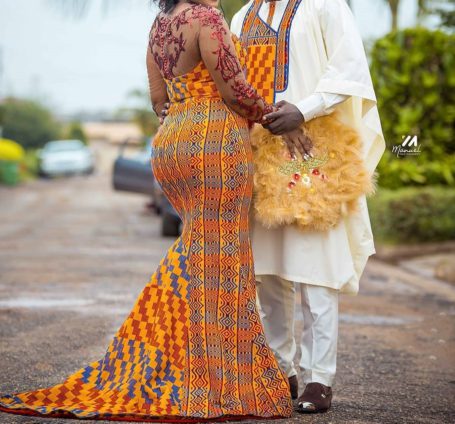Formal events, with their strict dress codes of black ties and suits, often present a conundrum in the African context, particularly in Ghana. The rigid adherence to Western formal wear can seem not only impractical but also culturally restrictive. The time has come to rethink these conventions and embrace attires that reflect both the climate and the rich cultural heritage of the region.
The Impracticality of Suits and Ties
Ghana's tropical climate is characterised by high temperatures and humidity. The traditional suit and tie, while suitable for temperate climates, become cumbersome and uncomfortable in Ghanaian conditions. The layers of a suit trap heat, making it unbearable for attendees to remain comfortable during events. Moreover, the tight collar and tie further exacerbate discomfort, often leading to an unpleasant experience that detracts from the occasion's enjoyment.
Embracing Cultural Attire
Ghana boasts a diverse and vibrant cultural heritage, with traditional attire that is both elegant and appropriate for the climate. The rich textures and patterns of kente cloth, the flowing ease of agbada, and the simple sophistication of batakari offer alternatives that are not only culturally significant but also more suitable for the weather.
For instance, a beautifully woven kente cloth can be just as formal and visually striking as a suit. Agbada, with its loose and airy design, provides comfort while maintaining a sense of grandeur appropriate for formal events. These garments not only allow for personal expression but also honour the cultural traditions that have been passed down through generations.
The Need for Flexibility
Introducing flexibility in dress codes for formal events can have several benefits. It can foster a sense of inclusivity, allowing attendees to express themselves in ways that are meaningful and comfortable. This flexibility can also promote cultural pride, showcasing the beauty and diversity of Ghanaian attire on a formal stage.
Event organisers can set guidelines that allow for a range of acceptable attire. For instance, men could choose between a traditional suit or a formal kente or agbada ensemble, while women might opt for elegant dresses or traditional gowns. This approach maintains the event's formal nature while accommodating cultural and climatic considerations.
Prescribed Colours for Uniformity
To achieve a certain aesthetic effect and maintain uniformity, specific colours for the alternative African attires can be prescribed. This ensures that the event retains a cohesive look while allowing for the diversity of traditional garments. For example, organisers might request all attendees wear variations of blue and gold, colors that symbolise tranquility and wealth in many African cultures. By coordinating colours, the event can achieve a visually harmonious and elegant atmosphere.
Modernising Traditions
Adapting dress codes does not mean abandoning tradition but rather modernising it to fit contemporary contexts. Just as Western cultures have evolved their formal attire over centuries, so too can Ghana. By incorporating traditional elements into formal dress codes, we create a unique blend that respects heritage while embracing modernity.
Conclusion
The insistence on black ties and suits at formal events in Ghana is increasingly seen as an unnecessary restriction that fails to account for the local climate and cultural richness. By allowing for alternative formal attire and prescribing specific colours for uniformity, we can create more inclusive, comfortable, and culturally resonant events. It's time to celebrate our heritage and climate through our dress codes, reflecting the true spirit of Ghanaian hospitality and elegance.
Latest Stories
-
Akufo-Addo commissions 97-km Tema-Mpakadan railway line
11 mins -
Majority requests recall of Parliament
27 mins -
Kanzlsperger and Professor Quartey support WAFA with medical Donation
28 mins -
Gideon Boako donates 10 industrial sewing machines to Yamfo Technical Institute
45 mins -
‘Golden Boy’ Abdul Karim Razak honored at WAFU-B general assembly
60 mins -
Buipewura Jinapor secures Vice Presidential position in National House of Chiefs with record votes
1 hour -
2024 election: I want results to come out like ‘milk and honey’ – Toobu
1 hour -
Ghana’s Henry Bukari hands over chairmanship of ECOWAS Brown Card Council of Bureaux
1 hour -
Residents of Dome-Kwabenya on edge ahead of December elections
2 hours -
Moffy drops new single ‘Wo’, blending culture and modernity
2 hours -
Don’t bring soldiers to polling stations – Martin Kpebu
2 hours -
Ogyeahohuo Yaw Gyebi II retained as President of National House of Chiefs
2 hours -
Embrace ICT to fit in digital world – Ho NYA boss to youth
3 hours -
We don’t want armed soldiers at polling stations – Tanko-Computer
3 hours -
Drama as police corner armed robbers inside locked forex bureau at Lapaz
3 hours

